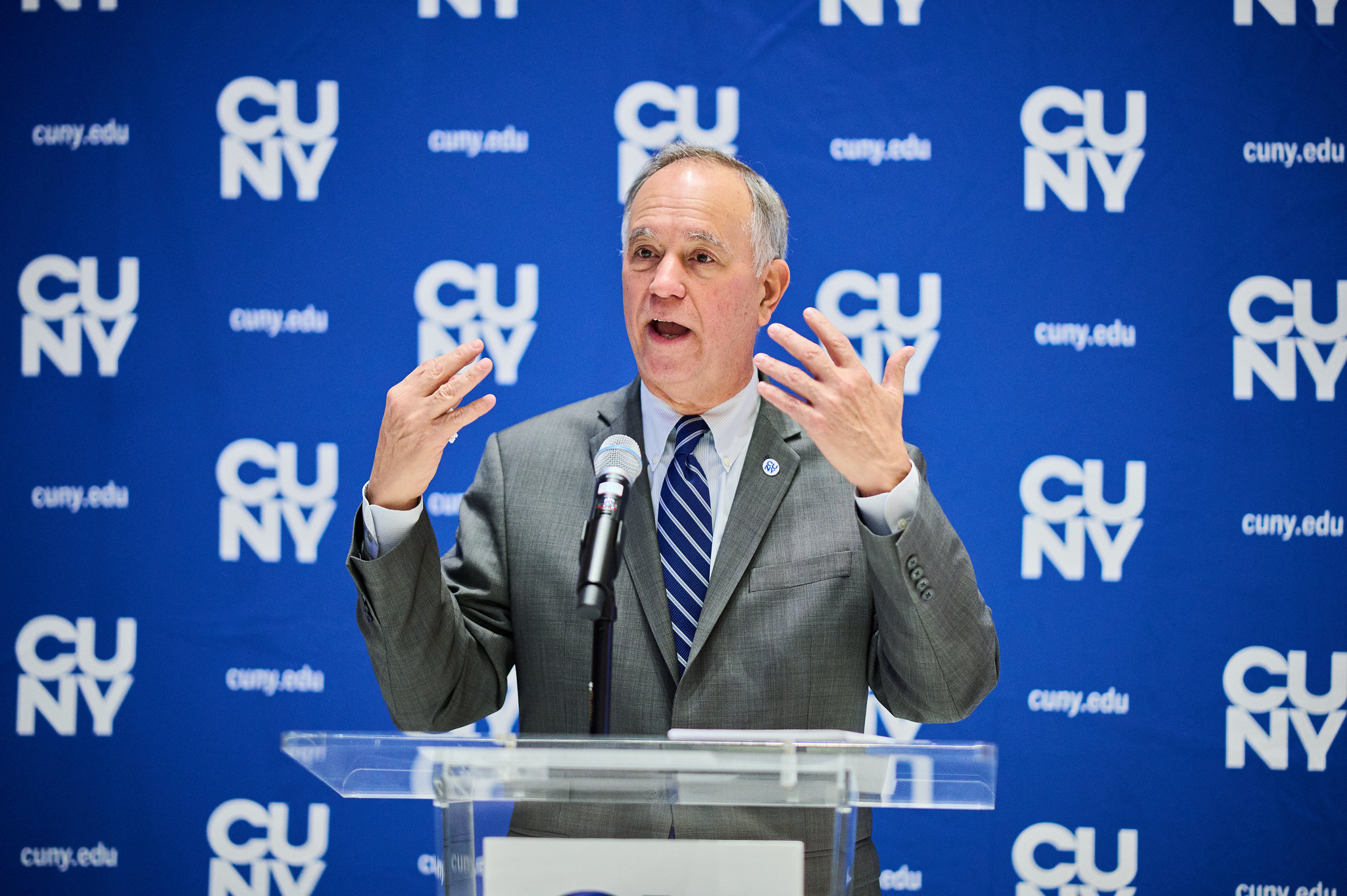About 40% of City University of New York (CUNY) students are eligible to receive social benefits, such as SNAP vouchers, but far less than half of those who could apply have not even applied.
This “disconnection” with other available housing and health insurance programs is experienced most acutely by the student body of The Bronx, the county with the highest poverty rates in the Big Apple and the country.
Precisely, there in Salsa County, it is very clear that many students suffer the burden of food insecurity and often the challenge of finding a place to sleep.
In this context, which was complicated after the COVID-19 pandemic, CUNY Chancellor Félix V. Matos Rodríguez announced this Monday the launch of CUNY CARES, a three-year pilot program designed to help students access medical care, mental health treatment, food and housing assistance.
The initiative pays internship students to conduct outreach activities with classmates who may qualify for services such as the Supplemental Nutrition Assistance Program (SNAP) or Medicaid. And most importantly, make sure they sign up.
“It is very difficult to learn and complete a degree when you are worried about paying for food, housing and healthcare, and this program is helping our students obtain essential services that will allow them to more easily focus on their academic and life goals.” , Rodríguez explained.
A network of support and information
CUNY’s new integrated approach leverages its expertise in peer-to-peer student relations and productive partnerships with local government agencies and community organizations to build a comprehensive support system.
CUNY CARES, which stands for Comprehensive Access to Resources for Essential Services, connects students with services offered by the New York City Human Resources Administration (HRA), as well as with housing providers in the Bronx and other community organizations local.
The program already under development at CUNY’s three Bronx colleges (Bronx Community College, Hostos Community College and Lehman College) could generate millions of dollars in government aid to students who are eligible but not receiving benefits.
In the specific case of The Bronx, enrolling the estimated 7,200 students who are eligible on the three campuses, but are not registered in these social programs, would contribute an additional $25.1 million to their family budgets.
The program is also designed to help students access medical care and mental health counseling, through community and university providers.
For her part, Liliana Cornejo, a senior at York College, who is working with CUNY CARES as a counselor, describes that “not only are they giving students a bag of food to eat for a week, we are teaching them how to navigate the system independently, to be successful.”
A plan that will extend
Data from this pilot plan will be analyzed to develop a clear understanding of its impact, particularly its impact on graduation and retention rates. Once this phase ends, the successful elements will spread to the other 22 CUNY campuses.
A project director, a housing specialist, and a program evaluator will be available at each site to serve students whose essential needs are not currently being met, including weekend and evening students, parents of students and university students with disabilities.
“No one can learn something if they are hungry. Students cannot be successful if they are homeless. “Students cannot thrive if they do not have access to health care,” said Milton Santiago, interim president of Bronx Community College, at the launch of this pilot plan.
The program is supported by city, state and philanthropic funds, including those from the Mayor’s Public Engagement Unit, Governor Kathy Hochul, the Mayor’s Office of Economic Opportunity, the Andrew W. Mellon Foundation, the Carroll and Milton Foundation Petrie.
CUNY is the nation’s largest urban public university, founded in 1847 as the nation’s first tuition-free public institution of higher education. This home of higher learning has seven community colleges, 11 senior colleges, and seven professional or graduate institutions spread across the five boroughs of New York City, serving more than 225,000 undergraduate and graduate students.
The data:
- 40% of CUNY students are eligible to receive government benefits such as SNAP and the Special Supplemental Nutrition Program for Women, Infants and Children (WIC) and Medicaid, but student surveys reveal that only 40% of those eligible are currently enrolled .
